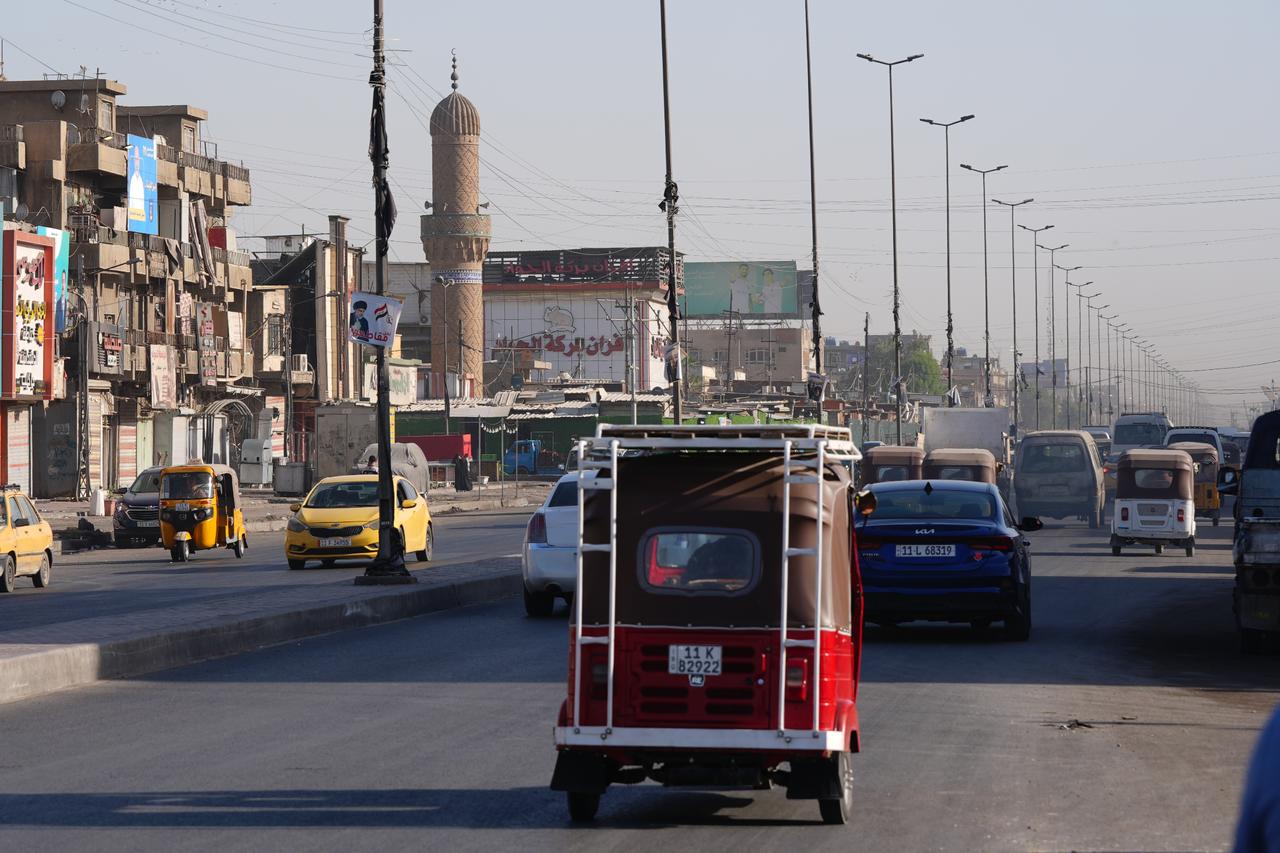
The Iraqi capital, Baghdad, has been experiencing continuous disruptions and interruptions in the Global Positioning System (GPS) since Oct. 23, affecting daily and commercial activities, with no official explanation from the government—a vague response seen as an effort to avoid public alarm or revealing security information.
This electronic jamming—of “unknown origin”—has sparked widespread discontent among Iraqis and prompted users to question its source and purpose amid official silence.
In contrast, official bodies at the Ministries of Defense and Interior, and the Media and Communications Commission, have refrained from providing clear explanations, describing the disruption only as a “technical issue.”
This approach has been interpreted as an effort to avoid public concern or reveal sensitive security details.
However, the Iraqi Ministry of Communications, in a statement issued Wednesday evening, denied carrying out any GPS jamming in the capital.

Iraqi military adviser Safaa al-Asam told Al-Jazeera that “no decision or official justification has been issued so far” by the Ministry of Communications or other authorities responsible for location verification and tracking.
He added that this lack of an official statement “reinforces the possibility of sensitive factors at play that are not linked to an internal actor.”
He also said the jamming has not only affected ground services but has also impacted civil aviation, citing pilots who reported losing location and timing signals in flight.
Al-Asam outlined three possible security explanations: preparations for a potential strike on Iran, concealing the movements of armed factions inside Baghdad, or protecting the movements of a recently arrived U.S. delegation. He stressed that indicators point to an external actor rather than a domestic source.
Tahsine Hani al-Amiri, head of the Cloud Computing and Networks Unit at the Ministry of Communications and Information Technology, said that widespread jamming of global navigation systems such as GPS, GLONASS, and Galileo is not new.
But it has become more noticeable as the elections approach, due to efforts to protect vote-counting centers and voter databases from any technical or physical targeting.
He said the purpose of the jamming is to prevent unmanned aerial vehicles from reaching sensitive locations, including server sites and the Independent High Electoral Commission’s databases.
The government has sought to reassure the public that the measures fall within the framework of protecting national security and digital sovereignty.
However, independent experts argue that greater transparency remains essential to avoid confusion and maintain trust between citizens and state institutions.